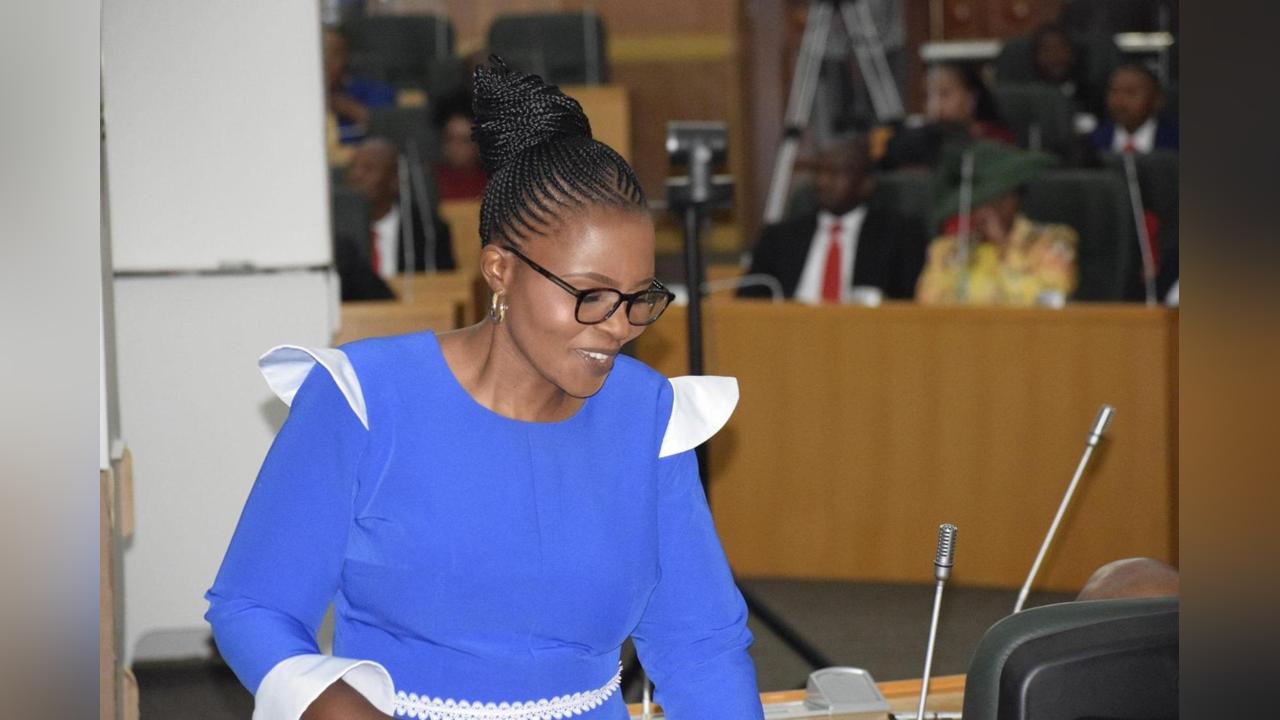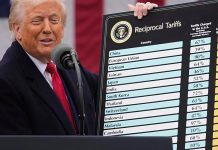Africa-Press – Lesotho. Early in her life, Liteboho Kompi joined politics for fun. “I did not have any further dreams than being just an ordinary Lesotho Congress for Democracy (LCD) member who could be seen dancing to the party’s political songs,” said Kompi, recalling her novice days in politics.
In 2012 when the Democratic Congress (DC) was born after a split from the LCD, some members approached Kompi asking her to stand for elections at her then Qaqatu constituency.
But she lost the primary elections. After the loss, the LCD accorded her an opportunity to be a Proportional Representative (PR) Member of Parliament (MP).
Later, she landed a job as a Deputy Minister of Education and Training. “Since then, my love for politics has intensified. I became exposed to issues that I never knew when I became an MP,” says the 40-year-old.
Before becoming an MP, Kompi says she had always fought against child marriages which are common in most parts of the rural Lesotho. “Child marriages frustrate the development of the girl child because they cannot further their studies to the next level.
I believe that education is a key to success. Once the girls get married at an early stage, that move usually throws banana skins in their lives,” Kompi says.
While in parliament, she says she advocated for the enactment of anti-child marriage laws. “It was my passion to teach people in the village about the negative consequences of child marriages.
I would throw in parliament hot debates. I also did the same in the villages. Some people do not understand that it is illegal for girls to get married while still young because their bodies are not yet ready for such burdens.
The sad reality is that some parents push for the marriage of their daughters who are still at a tender age oblivious of the predicament they are putting them into,” she says.
“This is what I have been fighting for,” Kompi says, adding that she is going to continue her fight until the practice is eradicated. The vibrant and energetic MP says she talks about child marriages on all public platforms so that people could understand it.
The MP entered the race for a second time in the same constituency under the LCD but she lost yet again in 2015 but that did not dampen her spirit in politics.
One of the important milestones in her political journey was securing a job as deputy Minister of Health. Kompi strongly advocated for maternal issues while at the Ministry of Health.
“I am gravely concerned about the deaths of mothers when delivering babies,” Kompi, who joined Selibe Mochoboroane when he split from the LCD to form the Movement for Economic Change (MEC) in 2017, says.
“In fact I was a founding member of the MEC.
I became a member of the Executive Committee serving as the public relations officer, a position I still hold,” says Kompi, whose major task is to communicate party issues and policy positions to the public.
Kompi also became a member of the National Dialogue Planning Committee, whose function was to gather public opinion regarding the national reforms process. There were three representatives from opposition parties in the reforms committee.
Later, Kompi landed a job as deputy chairperson of the National Reforms Authority (NRA), whose task was to formulate reforms for the country in designated areas.
Another area of her interest is to see women at village level being empowered and economically emancipated. Kompi wants to see women financially independent.
“The current situation now is that many women still rely on their partners for financial resources yet it is possible for women to break through these barriers,” she says.
She says most women still venture into poultry farming with “abysmal ignorance”. “So they have to be trained and equipped with skills so that they can graduate out of poverty.
Others are in crop production with limited skills in that field,” says Kompi, who is also an enthusiastic farmer who keeps poultry for sale. Kompi believes that it is high time that the country moves from peasant farming and adopt commercial agriculture as a strategy to fight poverty.
Incredibly, Kompi is unafraid and unashamed to roll up her sleeves and get her hands dirty. She also goes out under the baking sun to tend her crops in the fields.
In the October 7th elections Kompi threw her hat in the ring contesting the elections in Likotsi constituency under the MEC banner. She lost the elections to the Revolution for Prosperity’s (RFP)’s Lineo Rantšo.
Frustrated after the massive blow, her party offered her a PR seat in the 11th Parliament. Among issues that she plans to push in parliament is to see factory workers being given a fully paid three-month maternity leave.
“I am also going to push to see that the working hours of factory workers are flexible,” she says.
Since her constituency covers the Tikoe Industrial Estate, she regularly sees women hunting for jobs in the factories struggling to access facilities such as toilets.
Kompi says women looking for jobs need decent places to relieve themselves. Asked about her future plans in politics, Kompi says she is not aspiring to be leader of her party one day.
“That is not my project at all,” she says, adding that being a leader comes with an avalanche of responsibilities.
When further asked if she wants to be a Prime Minister of this country one day, she was quick to shake her head in denial. “I don’t want to be leader of a political party, let alone to be a Prime Minister of this country,” Kompi says.
Regarding the recent elections, Kompi believes her party performed well compared to other political parties. The MEC bagged the Thabana-Morena constituency which was won by party leader Selibe Mochoboroane.
Kompi says some big and old parties suffered a massive blow in the past elections. “So our party, small as it is, did its best in the elections. But there are still some gaps that we want to cover as a party in order for us to grow from strength to strength,” says Kompi, adding that the party is satisfied with the coalition marriage with the RFP.
The MEC has four Proportional Representatives (PR) MPs in the government. The Lesotho Congress for Democracy (LCD) is also part of the marriage. “We are being consulted adequately on critical issues in the government,” she said.
She says this means the government could last up to five years because it is operating in line with the coalition agreement. “Undeniably, there is no marriage without problems,” Kompi says.
For her, the private sector could help rekindle the troubled economy by creating jobs for the unemployed, especially youths who are roaming the streets with nothing to do.
For More News And Analysis About Lesotho Follow Africa-Press






